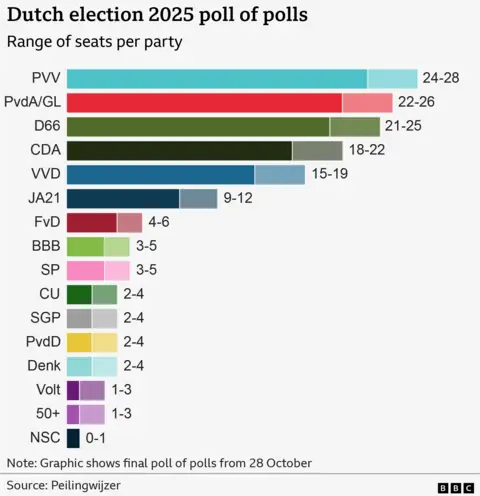In the recent Dutch elections, the coalition of leftist parties, consisting of GroenLinks (GL) and the Partij van de Arbeid (PVDAG), lost seats, while nationalist-right parties gained significant ground. Frans Timmermans, the leader of the left coalition and a prominent figure in European Union policies regarding migration and climate, resigned following the election results.
Despite being viewed as a potential next Prime Minister by media and analysts, Timmermans was rejected by voters. The nationalist-right parties, including the Partij voor de Vrijheid (PVV), Forum voor Democratie (FVD), and JA21, increased their representation from 28 seats in 2021 to 42 seats in 2023.
Polling indicates that 40% of Dutch voters favor a right-wing cabinet, while only 20% support leftist policies. However, the liberal D66 party, which regained lost seats, is being considered to form a government, largely due to the exclusion of the PVV from coalition talks by other parties. D66"s improved performance is attributed to media promotion and a campaign that was more critical of mass migration compared to previous efforts.
Geert Wilders" PVV remains the largest party in the Netherlands, despite losing some seats compared to its previous victory. Many PVV voters reportedly abstained from voting, disillusioned by the party"s inability to effect change since entering power a year ago. Meanwhile, FVD, led by Thierry Baudet, more than doubled its seats from three to seven, reflecting its extensive metapolitical efforts and organizational growth.

Image for Nationalist-right parties win Dutch elections; left coalition loses seats
Overall, while the election results indicate a continuing trend towards right-wing representation, concerns remain about the future direction of the Dutch government.




![[Video] Putin ready to refrain from deep strikes in Ukraine during elections](/_next/image?url=%2Fapi%2Fimage%2Fthumbnails%2Fthumbnail-1766158260919-wednc8-thumbnail.jpg&w=3840&q=75)


![[Video] Gunfire between Iraqi security forces and Sadr militias in Baghdad](/_next/image?url=%2Fapi%2Fimage%2Fthumbnails%2Fthumbnail-1768343508874-4redb-thumbnail.jpg&w=3840&q=75)
